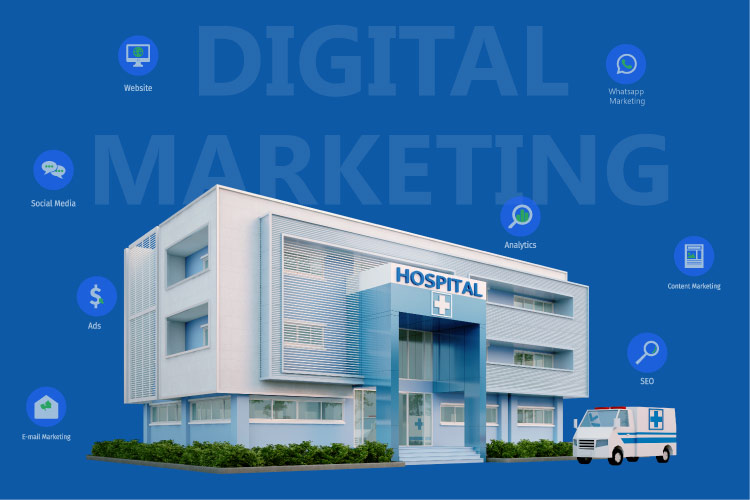
Digital Marketing for Hospitals: Strategies That Drive Results and Revenue
February 4, 2025Book A Free Demo
Latest Marketing Articles
Book A Free Demo
In today’s hyper-connected world, health misinformation is spreading at an alarming rate, creating what has been termed an “Infodemic.”
This surge of false information affects an individual’s well-being, public health systems, and the credibility of healthcare professionals. With more people turning to online sources for medical advice, identifying reliable health information has never been more critical.
As healthcare marketers, we must not only recognize the dangers of misinformation but also understand how we can combat it ethically and effectively.
Health misinformation has severe implications for public health. From false claims about miracle cures to anti-vaccine propaganda, inaccurate information can lead to harmful medical decisions, delays in proper treatment, and distrust in healthcare systems. The COVID-19 pandemic has shown just how fast misinformation can spread, leading to panic, misinformed preventive measures, and the public’s reluctance to follow scientifically backed medical advice.
Misleading health information can also contribute to health disparities, disproportionately affecting vulnerable populations who may already face barriers to accessing credible medical information.
Certain groups are more susceptible to health misinformation than others. According to studies conducted in India, 3 out of every 5 people need help distinguishing credible health content online.
This challenge is particularly prevalent among:
Misinformation preys on fear, uncertainty, and the natural desire to find quick solutions, leaving many groups at risk of harm.
Healthcare professionals, including doctors and nurses, play an integral role in combating health misinformation. As trusted authorities, their responsibility extends beyond just treating patients. They must actively educate their patients about the risks of misinformation and guide them towards credible sources of medical information.
However, with many patients turning to “Dr. Google” to cross-check advice, the role of healthcare professionals in verifying and addressing misinformation has become more crucial than ever. Studies show that nearly 28% of Indians search online to validate their doctor’s advice, highlighting the need for transparent communication between healthcare providers and their patients.
Healthcare marketers are at the frontline of this battle against misinformation. By employing ethical marketing strategies, we can help broadcast accurate, credible medical information to the public. Here’s how marketers can help:
Always ensure the information shared is backed by verified medical sources. Use credible data to build trust with your audience.
Conduct rigorous fact-checking before publishing health-related content. This is particularly important when discussing trending topics such as alternative medicine, new treatments, or vaccine information.
By optimizing your content with the right keywords and phrases, such as “reliable medical advice” or “doctor-approved health tips,” marketers can push credible content to the top of search engine results, thereby minimizing the impact of misinformation.
Develop content specifically for those most vulnerable to misinformation, such as seniors, individuals with chronic illnesses, or low-literacy populations. Simplifying medical jargon and offering explanations in local languages can enhance understanding.
Marketers can regularly work closely with doctors and healthcare providers to ensure the content remains accurate and evidence-based.
Effective healthcare marketing goes beyond driving traffic and generating leads for hospitals. It is an ethical responsibility to ensure accurate, reliable health information reaches the public. As misinformation continues to undermine public trust in medical systems, marketers must protect this trust through transparency, honesty, and accountability.
At WhiteCoats, we understand the importance of sharing credible information. Our content creation process is built around four key stages to ensure that the information we share is accurate, trustworthy, and beneficial to our readers:
1. Research: We dive deep into the latest scientific findings and medical studies to gather factual information.
2. Resource Citation Check: We verify every source we reference to ensure the credibility of the data.
3. Quality and Fact Checks by Medical Professionals: Our content is vetted by our on-floor healthcare experts before it goes live.
4. Execution: We deliver the final content to educate and inform internet users.
By following these steps, healthcare marketers can create content that helps combat misinformation and builds stronger, more trustworthy relationships between healthcare providers and patients.


